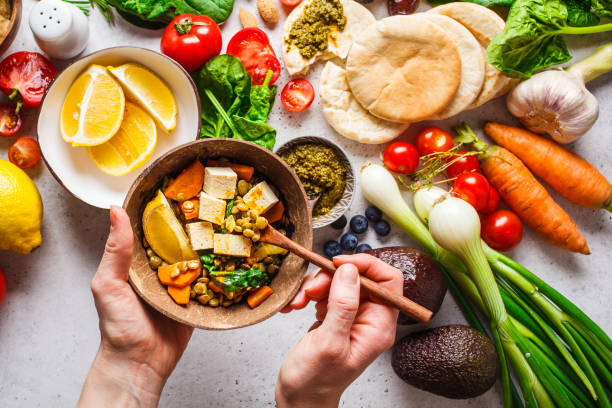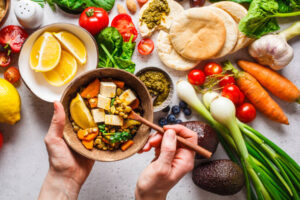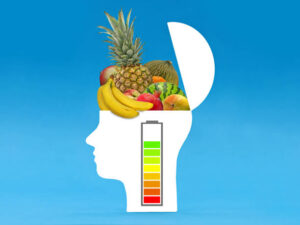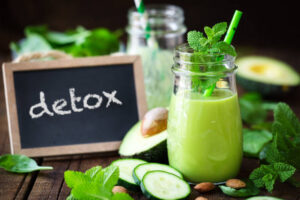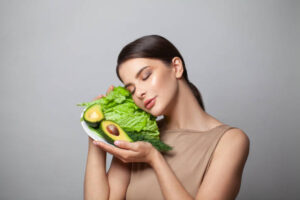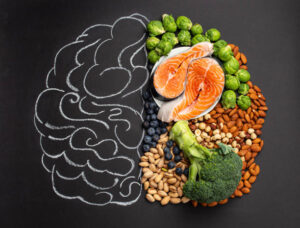Switching to a vegan diet is a meaningful and health-conscious decision. But with this shift comes the responsibility of ensuring you get all the nutrients your body needs. The key to thriving on a plant-based diet is understanding the vegan nutrients required to maintain optimal health and how to incorporate them into your meals.
Let’s dive deeper into the vegan diet essentials and ensure you’re well-equipped to make the most of your plant-based journey.
Why Nutritional Balance is Crucial
When I first went vegan, I was thrilled by the ethical and environmental benefits. However, I soon realized I couldn’t live on veggie burgers and almond milk alone. My energy levels dropped, and I found myself constantly hungry. That’s when I started researching vegan vitamins and minerals and discovered the importance of a balanced vegan diet.
Your body needs specific nutrients for energy, growth, and repair. While plants provide an abundance of these, a few nutrients require extra attention. With mindful planning, you can enjoy all the benefits of a vegan lifestyle without compromising your health.
10 Essential Vegan Nutrients and How to Get Them
1. Protein: The Powerhouse of Nutrition
Protein isn’t just for bodybuilders; it’s essential for everyone. Proteins are the building blocks of life, responsible for muscle repair, immune support, and hormone production. On a vegan diet, the challenge isn’t getting enough protein—it’s ensuring you get a variety of protein sources that include all nine essential amino acids.
Top Vegan Protein Sources
- Legumes: Lentils, chickpeas, black beans, and peas are excellent staples.
- Soy Products: Tofu, tempeh, edamame, and soy milk are versatile and protein-rich.
- Whole Grains: Quinoa, farro, and bulgur provide not only protein but also essential fiber.
- Nuts and Seeds: Almonds, peanuts, sunflower, and chia seeds pack a nutritional punch.
Practical Tips
To maximize protein intake, combine legumes with grains (think rice and beans or hummus with whole-grain pita). This pairing ensures you get a complete amino acid profile. I’ve found overnight oats with a dollop of peanut butter and chia seeds to be a delicious protein-packed breakfast.
2. Vitamin B12: The Vegan Essential
Vitamin B12 is crucial for nerve health, red blood cell production, and DNA synthesis. Since it’s primarily found in animal products.
Best Sources for Vegans
- Fortified Foods: Nutritional yeast, fortified plant-based milk, and cereals are reliable options.
- Supplements: A high-quality B12 supplement is non-negotiable for most vegans.
A Lesson Learned
I skipped B12 supplements early in my vegan journey, relying on fortified foods alone. A routine blood test revealed a deficiency, and I experienced fatigue I couldn’t explain. Now, I take my B12 supplement daily—lesson learned!
3. Iron: Oxygen for Your Cells
Iron is essential for hemoglobin production, which transports oxygen throughout your body. Without enough iron, you may feel tired, weak, and dizzy.
Iron-Rich Vegan Foods
- Legumes: Lentils, chickpeas, and black beans are iron-rich and easy to include in meals.
- Dark Leafy Greens: Spinach, kale, and Swiss chard are excellent choices.
- Fortified Cereals and Whole Grains: A simple way to boost your intake.
- Seeds: Pumpkin, sesame, and sunflower seeds are small but mighty sources.
Boost Absorption
Pair iron-rich foods with vitamin C to enhance absorption. A salad with spinach, oranges, and bell peppers is delicious and nutrient-packed.
4. Omega-3 Fatty Acids: Brain and Heart Health
Omega-3 fatty acids, particularly EPA and DHA, are crucial for brain function, reducing inflammation, and supporting heart health.
Plant-Based Sources
- Flaxseeds: Ground flaxseeds are easy to add to smoothies or oatmeal.
- Chia Seeds: A great base for pudding or as an egg substitute.
- Walnuts: Snack on them or toss them into salads.
- Algal Oil Supplements: The most direct vegan source of DHA and EPA.
5. Calcium: Strong Bones Without Dairy
Calcium is essential for strong bones and teeth, but it also plays a key role in muscle contractions, blood clotting, nerve signaling, and heart rhythm. A deficiency can lead to osteoporosis, brittle nails, and muscle function issues.
Vegan-Friendly Calcium Sources
- Fortified plant-based milk, juices, and cereals.
- Leafy greens like bok choy, kale, and broccoli.
- Calcium-set tofu and tahini.
Practical Advice
I love adding sesame seeds or tahini to roasted veggies—not only does it boost calcium, but it also adds a nutty, delicious flavor.
6. Vitamin D: The Sunshine Nutrient
Vitamin D is essential for calcium absorption and bone health. It also boosts immunity, reduces inflammation, and supports muscle function. A deficiency can lead to weakened bones, fatigue, and increased illness risk.
How to Get Enough
- Sunlight: Spend 15-20 minutes outdoors daily if possible.
- Fortified Foods: Many plant milks and orange juices are fortified with vitamin D.
- Supplements: Consider a D2 or D3 vegan supplement, especially in winter or low-sunlight areas.
7. Zinc: A Defender of Immunity
Zinc is a crucial mineral that supports your immune system, aids in wound healing, and helps with cell growth and division. It plays a role in numerous enzymatic processes in the body and is essential for DNA synthesis and protein production.
Top Vegan Zinc Sources
- Legumes, lentils, and chickpeas.
- Whole grains like oats and quinoa.
- Seeds, especially pumpkin and sunflower seeds.
8. Iodine: Supporting Thyroid Function
Iodine is vital for thyroid function, which controls metabolism, energy levels, and overall growth. A deficiency can lead to thyroid problems like hypothyroidism, causing fatigue and weight gain.
Sources for Vegans
- Iodized salt is the easiest and most reliable option.
- Sea vegetables like nori and wakame provide natural iodine but use sparingly to avoid excess.
9. Selenium: A Powerful Antioxidant
Selenium is a trace mineral that helps protect cells from oxidative damage and supports thyroid health. Adequate selenium intake is crucial for overall well-being and immune function.
Vegan Sources
- Brazil nuts (just 1-2 a day meet your needs).
- Whole grains, legumes, and seeds are additional sources.
10. Magnesium: The Multitasker Nutrient
Magnesium plays a role in over 300 biochemical reactions in the body, supporting muscle function, bone health, and nerve signaling. It helps maintain a healthy heart rhythm and regulates blood sugar.
Best Vegan Sources
- Dark leafy greens like spinach and kale.
- Nuts, seeds, and whole grains.
- Dark chocolate (a healthy indulgence!).
FAQs About Vegan Nutrients
1. Can you get all nutrients from a vegan diet?
Yes, with careful planning and supplements like B12 and DHA/EPA, you can meet all your nutritional needs.
2. Is protein hard to get on a vegan diet?
Not at all! Legumes, grains, soy products, nuts, and seeds are excellent protein sources.
3. What are common deficiencies in a vegan diet?
Vitamin B12, omega-3s, and iron are the most common, but they’re easy to address with proper planning.
4. Are supplements necessary for vegans?
Yes, especially for nutrients like B12, Vitamin D, and omega-3s, which are less abundant in plant-based diets.
5. How can I track my nutrient intake?
Apps like Cronometer help track your intake of key vegan vitamins and minerals.
Conclusion: Essential Vegan Nutrients
Eating well-balanced vegan nutrients is more than achievable—it’s empowering. By focusing on nutrient-dense, plant-based foods and supplementing where necessary, you can thrive while enjoying the benefits of a compassionate lifestyle. Start small, experiment with recipes, and prioritize variety on your plate. Soon, you’ll find that being vegan isn’t just healthy—it’s delicious, sustainable, and deeply rewarding.

